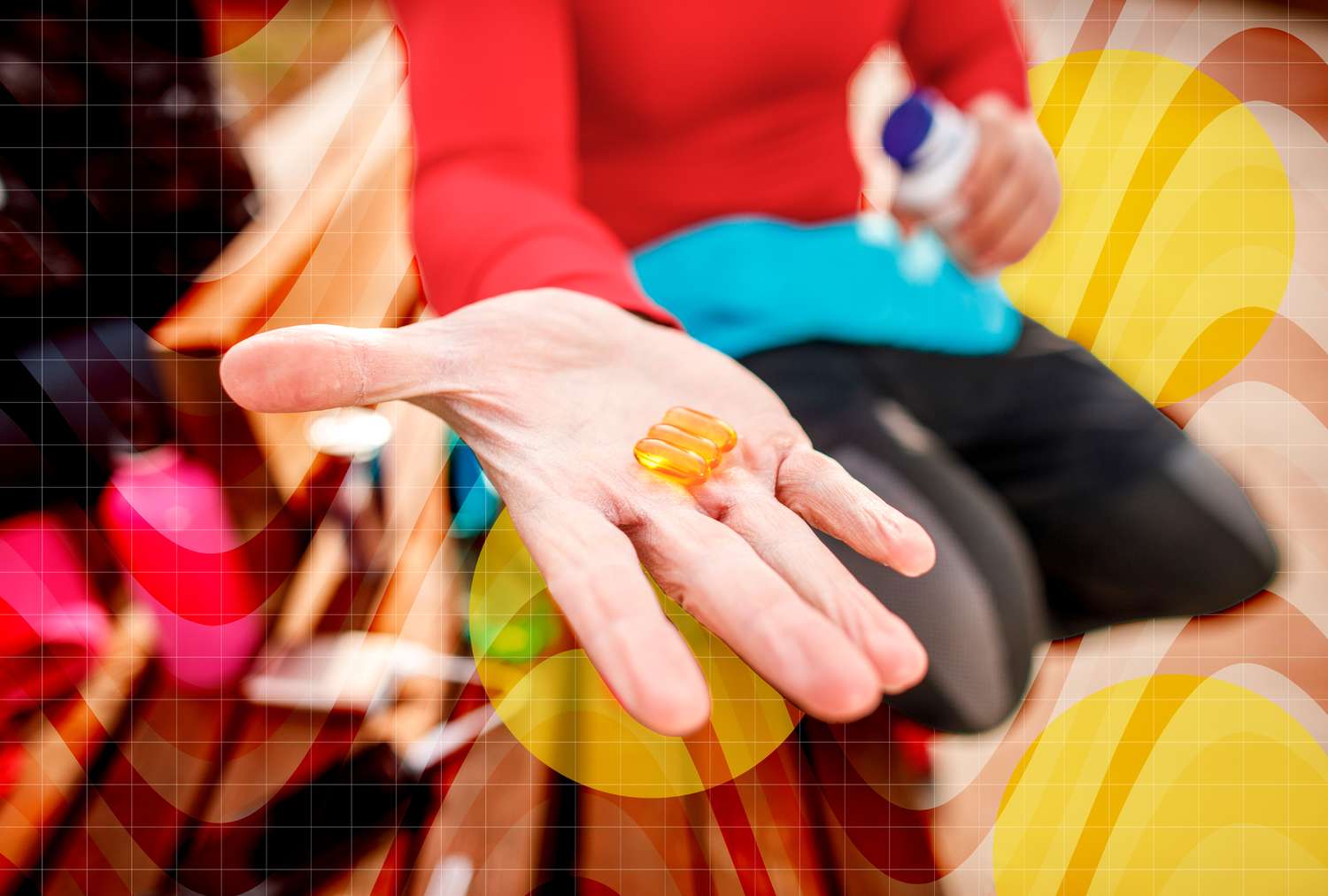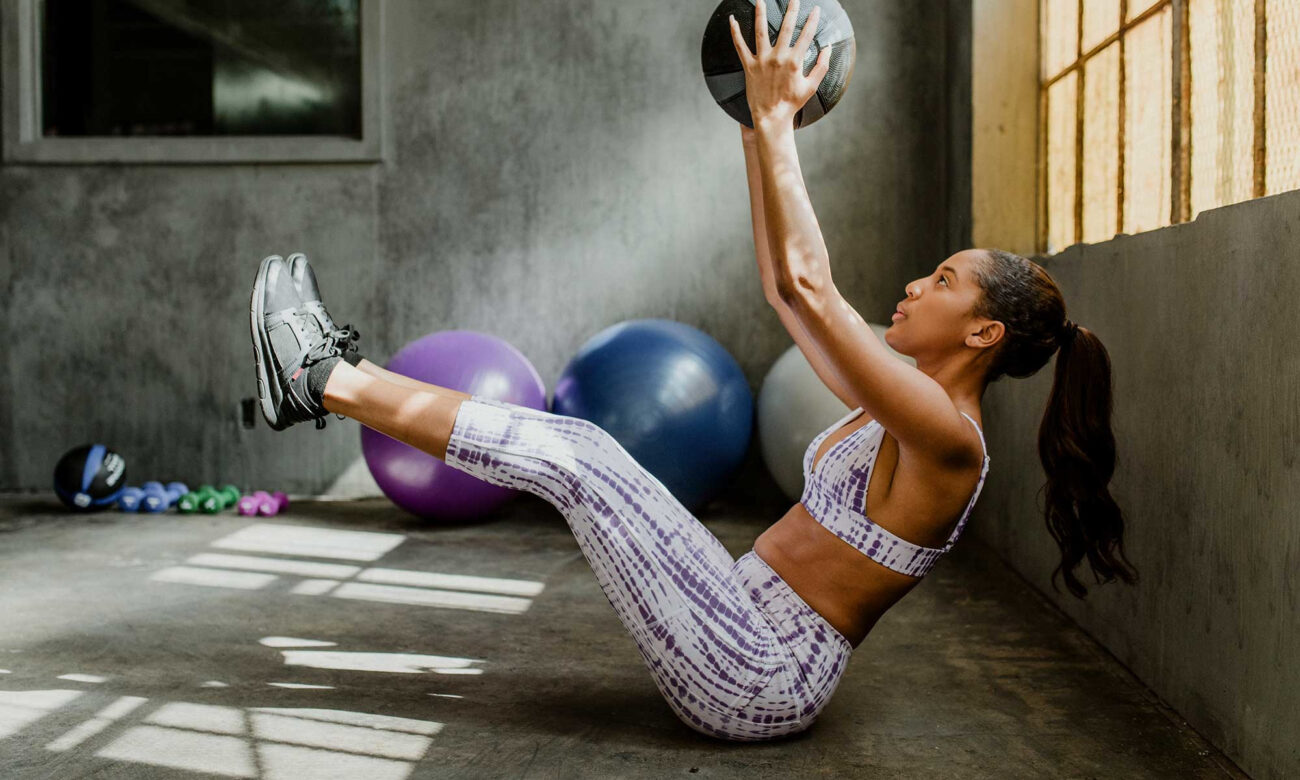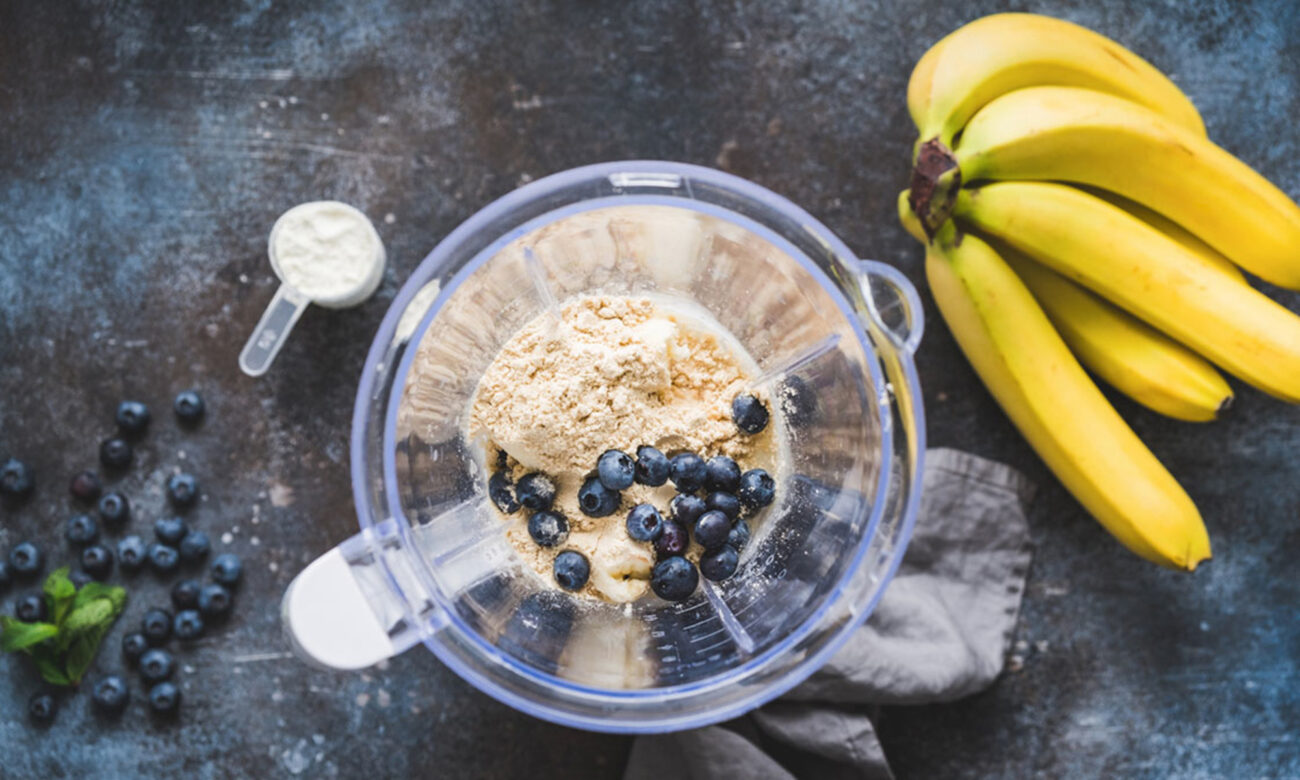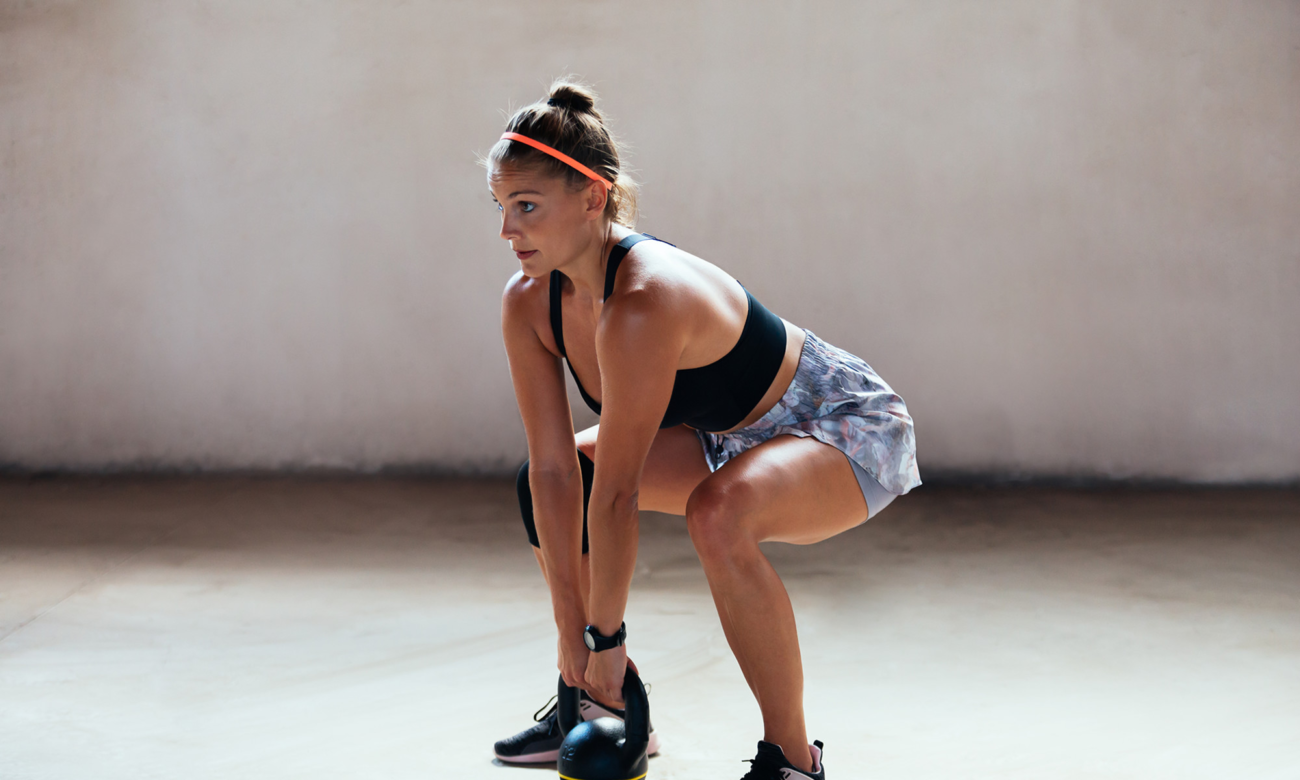Blog
5 Supplements to Consider for More Energy

- Healthy eating comes first, but supplements can sometimes help fight fatigue.
- Supplements like iron, vitamin D, B12, nicotinamide riboside and creatine may support energy.
- Move your body, get enough sleep, stay hydrated and eat enough food to support your energy.
Tired of being tired all the time? You may need to take a closer look at your nutrition. Though eating a balanced, nutritious diet should always be your first approach, supplements can sometimes help if it’s challenging to meet your nutrient needs through food alone. “Some nutrient deficiencies can cause fatigue and low energy, like vitamin B12, iron and vitamin D,” says Avery Zenker, M.A., RD, a registered dietitian, adding that a combination of foods and supplementation may help to correct it.
Other supplements like NAD+ and creatine may also help with low energy by supporting energy production at the cellular level. We asked dietitians to share the five supplements they recommend for more energy, plus other tips to boost your energy levels.
1. Nicotinamide Riboside
NAD+ has become all the rage in the health and wellness world—and for good reason. A derivative of niacin (vitamin B3), NAD+ plays an important role in energy metabolism and cellular function. “NAD+ is a coenzyme vital to cell health and plays a critical role in two key cellular processes: converting the food you eat into energy and supporting DNA repair,” says Toby Amidor, M.S., RD, CDN, FAND.
Healthy lifestyle habits—such as eating niacin-rich foods, exercising regularly and maintaining a good sleep cycle—can help support optimal NAD+ levels. However, a supplement may help to raise your NAD+ levels faster, especially as you age. “NAD+ levels start to decline as we age, and things like a poor diet, drinking alcohol and not getting enough sleep can affect your NAD+ levels,” says Marita Radloff, M.S., RDN, LD.
However, taking the right supplement is key. “Although a common misunderstanding, NAD+ is not bioavailable, meaning NAD+ supplements or NAD+ IV (what all the celebs are doing) is not effective in elevating NAD+ levels,” says Amidor. Instead, she recommends a precursor called nicotinamide riboside (NR). “NR is one of the most well-studied and safe NAD+ precursors, with over 50 years of research,” she adds.
2. Vitamin B12
Vitamin B12 deficiency is a common cause of fatigue, as this vitamin is important for converting food into energy. It’s primarily found in animal-based foods like meat, seafood and dairy. While some plant-based products—like fortified nutritional yeast and plant-based milks—do contain B12, options are more limited. As a result, vegetarians and vegans are at a much higher risk of deficiency. When it comes to supplements for energy, “B12 is a top pick for me, especially for vegetarians, vegans or anyone over 50, since absorption declines with age,” says Caroline Thomason, RD, CDCES. “Also, folks on diabetes medication may be at an increased risk for low B12 levels,” she adds. Studies show that metformin—a popular diabetes medication—reduces absorption of B12, potentially leading to a deficiency.
That said, it’s not beneficial for everyone. If you’re not deficient, then adding this supplement likely won’t have a noticeable impact on your energy levels. To be sure, it’s wise to get your levels tested, especially if you suspect you’re deficient.
3. Creatine
To help you sprint a little faster or get in an extra rep or two, a creatine supplement may help. “One of the main mechanisms of creatine is to provide energy, mainly to your muscles. It does this by replenishing ATP (adenosine triphosphate)—the main energy source to our body’s cells,” says Kristin Kirkpatrick, M.S., RDN. During short, intense exercise, your body relies on the phosphagen system (also known as the creatine phosphate system) to quickly produce ATP. Phosphocreatine, a stored form of creatine in the muscles, helps to replenish ATP quickly, allowing you to sustain high-intensity efforts for brief bursts.
You can boost your phosphocreatine levels by eating creatine-rich foods—like beef, pork or fish—or through supplements, which provide significantly higher amounts of creatine than food alone. In fact, research shows that a creatine supplement can enhance performance in sports that rely on quick, powerful movements.
4. Vitamin D
Just as plants get energy from the sun, so do we—thanks to vitamin D. However, with growing caution around sun exposure and many regions experiencing long, dark winter months, vitamin D deficiency is relatively common. Because of this, many people may benefit from a vitamin D supplement.
Vitamin D plays a vital role in overall health by helping regulate blood sugar, reduce inflammation, support immune function and maintain strong bones. It also supports the production and function of neurotransmitters like dopamine and serotonin, which regulate mood and energy levels. Studies show that low vitamin D may lead to fatigue by disrupting the balance of dopamine and serotonin, and by increasing inflammation in the body.
“Supplementing with vitamin D can reduce fatigue and improve energy levels in those who are deficient, but not in those with normal levels,” says Zenker. That said, it’s a supplement many adults could benefit from taking. “Nearly 95% of Americans don’t consume the recommended intake for vitamin D, so sourcing from supplements and/or sunlight can be helpful,” says Zenker.
5. Iron
Iron deficiency is also common, especially among children, women of childbearing age and pregnant women. Iron is an essential component of hemoglobin—a protein in red blood cells responsible for transporting oxygen throughout the body. Without enough iron, you may experience symptoms like fatigue and weakness. Foods with highly available iron include beef, chicken, fish and fortified cereals. Still, it can still be difficult to meet your iron needs through food alone.
If your bloodwork reveals an iron deficiency, your health care provider may recommend a supplement to increase your iron levels. However, experts recommend taking a supplement only if your iron levels are low or if a health care provider recommends one. “Iron supplementation is not recommended for individuals with adequate iron levels. So, it’s not a one-size-fits-all approach but rather a starting point for patients to consider when discussing with their health care provider,” says Kirkpatrick.
Other Energy-Boosting Tips
Taking a supplement shouldn’t be your only strategy for boosting your energy levels. These habits are just as important to help you feel more energized:
- Eat Regular Meals and Snacks. “Eating enough total food for energy is the No. 1 thing you can do to support your energy levels,” says Thomason. After all, food provides the fuel (calories) you need to power through your day. Be sure to eat regular meals and snacks to keep your energy steady.
- Hydrate. “One of the best things you can do for more energy is staying hydrated,” says Radloff. The best options are sugar-free beverages like plain or sparkling water, unsweetened tea and milk.
- Get Up and Move. Sometimes all you need is to get your blood flowing to boost your energy levels. “Being more active overall can help you feel more energized every day, and a small bout of exercise can give you an energy boost within minutes,” says Zenker. Whether it’s a 30-minute workout or a two-minute stretch, make time to move your body and feel the benefits!
- Take Sleep Seriously. If you’re sleep-deprived, a supplement probably won’t make much of a difference. Try to get seven to nine hours of good-quality sleep per night to help your body recover and prepare for the day ahead.
Our Expert Take
Fatigue is a common issue many people face. Fortunately, there are many things you can do to support your energy. Along with eating a nutritious diet, taking certain supplements may help. Creatine and nicotinamide riboside are popular supplements that may support energy levels when taken regularly, while iron, vitamin D and vitamin B12 may help if you’re deficient.
Don’t forget about other habits that can affect energy too, like eating enough calories, staying hydrated, being physically active and sleeping enough. “Using supplements to support energy can absolutely help, but they’re often most effective when paired with a healthy and balanced diet, exercise and proper sleep hygiene,” says Amidor. Rather than seeing supplements as a cure-all, think of them as a tool in your overall wellness toolbox.












